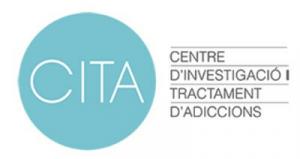Psychotherapy as a scenario to learn from experience
There is a popular saying that says "Nobody takes away from you the baila'o". And although it is true, because the experiences lived are indelible, another very different issue is learning from the baila'o. Nobody takes away the baila'o, but not everyone learns from it and for this they keep repeating, over and over again.
It is not necessary to focus on the accumulation of experiences, but on learning from them to have a fuller life.
- Related article: "How to learn from mistakes: 9 effective tips"
The importance of knowing how to learn from experience
The foregoing connects with the phrase attributed to the Spanish philosopher and writer George Santayana and which says that he who does not know his past is doomed to repeat it in the future. The history of humanity and that of individuals is full of examples in which the same mistakes and conflicts have been repeated over and over again.
If we don't reflect on past experiences, if we don't draw lessons, and if we don't apply that knowledge to make more informed decisions today,
we run the risk of repeating the same negative patterns in the future.This is what the English psychoanalyst Wilfred Bion was referring to when he called to learn from experience. But this is not just any call: it is the challenge of development of the human being, and involves cultivating the ability to tolerate and reflect on emotional interactions and events experienced. For this author, experience is a complex process of interaction with the outside world and with our own psyche.
- You may be interested in: "Self-knowledge: definition and 8 tips to improve it"
Enhancing self-awareness in therapy
Although people are all the time learning from their own experience alone, that is, without any professional help, An optimal space to carry out this process is psychological therapy., which has many functions and scopes. One of them is to be a laboratory to learn from experience; that is to say, in the key of a popular saying, learn from the dance and learn from the past. Psychotherapy is the ideal place to make this reflection to which Bion invites. And it is ideal, since there the therapist can contain the emotional experiences so that the patient can transform them into learning through a process that, although it can be painful, must be tolerated in order to reach success. port.
It is in the therapist's ability to contain the patient's experiences so that they can be thought about. This process implies for the therapist to listen, understand and accept emotions and thoughts without judging or rejecting them. And for the patient this implies allowing "to be contained", which involves being receptive and allowing their own emotional experiences to be understood and processed by others.
However, the patient also has a very active role; must tolerate uncertainty and ambiguity, because we often find ourselves facing situations in which there are no clear solutions or answers. In this sense, one must be open to exploration, consideration of different perspectives and reflection. Only through emotional restraint and openness to new ideas can we learn from experience and develop a deeper understanding of ourselves and others. Another important aspect in Bion's thought is the role of curiosity in learning from experience. For him, curiosity is a mental attitude that drives the search for knowledge and the exploration of new ideas.
It is the ability to question, investigate and not take for granted what we think we know. Curiosity allows us to be open to constant learning and helps us overcome barriers that limit our understanding.
In short, learning from experience, according to psychoanalyst Wilfred Bion, is a complex process that involves the ability to reflect on interactions. emotions and thought patterns: in other words, it is the ability to learn from the dance and to learn from the past so as not to repeat it in the future. future. However, it requires an active role on the part of the therapist and patient oriented towards tolerance of ambiguity, curiosity and openness to new ideas. Learning from experience allows us to develop a greater understanding of ourselves and others, and helps us grow and evolve on our path to knowledge and wisdom.

